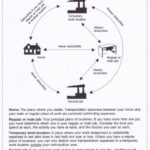
Whether you’re thinking about converting to QuickBooks Online or switching from QuickBooks Desktop to QuickBooks Online, your first step should be to take a long look at both applications. When you do, you’ll notice the difference immediately as QuickBooks Online offers a streamlined user interface, while QuickBooks Desktop relies on a flow-chart based interface. While both provide easy access to a variety of features and functions, only you can decide which one will work best for you. QuickBooks Online and QuickBooks Desktop are both excellent small business accounting software applications, both offering complete double-entry accounting as well as automatic processing of closing entries. Terms, conditions, pricing, special features, and service and support options subject to change without notice. Based on feedback I have received from clients, the other benefits of Plus do not warrant the additional cost.
Accounting
Additionally, QuickBooks Online allows you to calculate sales taxes automatically to apply to an invoice based on the customer’s address. This feature is particularly useful if you sell and ship products out of your state. QuickBooks Desktop has a more dated user interface than some cloud-based products and requires prior accounting knowledge to get the most out of the product.

QuickBooks Online vs. QuickBooks Desktop: Features
- Some of the features we looked into include the ability to create and send invoices, accept online payments, enter and track bills, and view reports on the go.
- In evaluating pricing, we considered the billing cycle (monthly or annual) and the number of users.
- By using optical character recognition (OCR), details from your receipts are scanned and recorded directly into relevant transactions.
- It’s an acceptable system but isn’t nearly as convenient as sharing your books through QuickBooks Online.
The software must have bank integrations to automatically feed bank or card transactions. The bank reconciliation module must also let users reconcile accounts with or without bank feeds for optimal ease types of expenditures of use. QuickBooks Online wins for pricing because it’s essentially more affordable than QuickBooks Enterprise. For instance, if you have five members, you can purchase the Plus plan for only $90 monthly, whereas with Enterprise, you need to pay $427 monthly for five users. All QuickBooks Online plans include good reporting options, with the Advanced plan offering the most comprehensive reporting options, including key financial metrics such as revenue and cash flow.
Today’s leading accounting platforms offer standard security features such as data encryption, secure credential tokenization and more. While human error will always play some role in security breaches, you can be confident in your accounting platform when it comes to keeping your information safe. The inventory management and job costing features are more robust in QuickBooks compared to QuickBooks Online. QuickBooks Online made it to our Best Accounting Software for Small Business list because it is a comprehensive platform that checks all the boxes for accounting, invoicing and expense tracking.
QuickBooks Online vs. Desktop: Which Is Right for Your Business?
In comparison with QuickBooks Desktop, QuickBooks Online is cloud-based, cheaper, easier to use, supports more integrations, and is unlikely to be discontinued by QuickBooks. Yes, you can, but the process is a bit tedious, as you need to export your files from QuickBooks Online to Desktop manually. If you are currently using QuickBooks Online and want to switch to an interface similar to QuickBooks Desktop, we recommend using the QuickBooks Online Desktop app. Read our article on what the QuickBooks Online Desktop app is to learn more. With QuickBooks Desktop, you must make an Accountant’s Copy of your data file and send it to your ProAdvisor. The copy will allow you to continue to work on transactions in the current period while your accountant makes adjustments to past periods.
QuickBooks Online’s month-to-month subscription service starts at $30 a month (totaling $360 a year). Or, to save money, you can try QuickBooks’ typical offer of 50% off for three months (though choosing the discount waives your free trial). Both QuickBooks Online and QuickBooks Desktop are capable programs with strong accounting features. In contrast, QuickBooks Desktop offers hardly any payment gateways, making it difficult for the modern merchant to disposition in commercial real estate accept online invoice payments easily.
However features present in editions older than three years are subject to planned obsolescence, removal, and discontinuation to “incentivize” you to purchase a new release. Similar to other cloud-based apps, QuickBooks Online allows for anytime/anywhere access to your books. Thanks to its two-way, real-time sync with QuickBooks Online or Desktop, Method ensures a hassle-free process with zero double data entry.
However, QuickBooks Desktop offers better reporting and supports more complex accounting. Four pricing plans for QuickBooks Online are available, ranging from $35 to $235/month (with an additional $50+/month for payroll). Every business is unique, and there may be instances where QuickBooks Desktop may be a better fit. For example, it may be more what are current assets definition example list how to calculate suitable for businesses with complex inventory management needs or those wanting offline access to their financial data. However, QuickBooks Online is the better choice for most companies, especially those with remote accountants and multiple employees. Meanwhile, QuickBooks Online provides some customization options for businesses, but they’re not as extensive as those in Enterprise.
